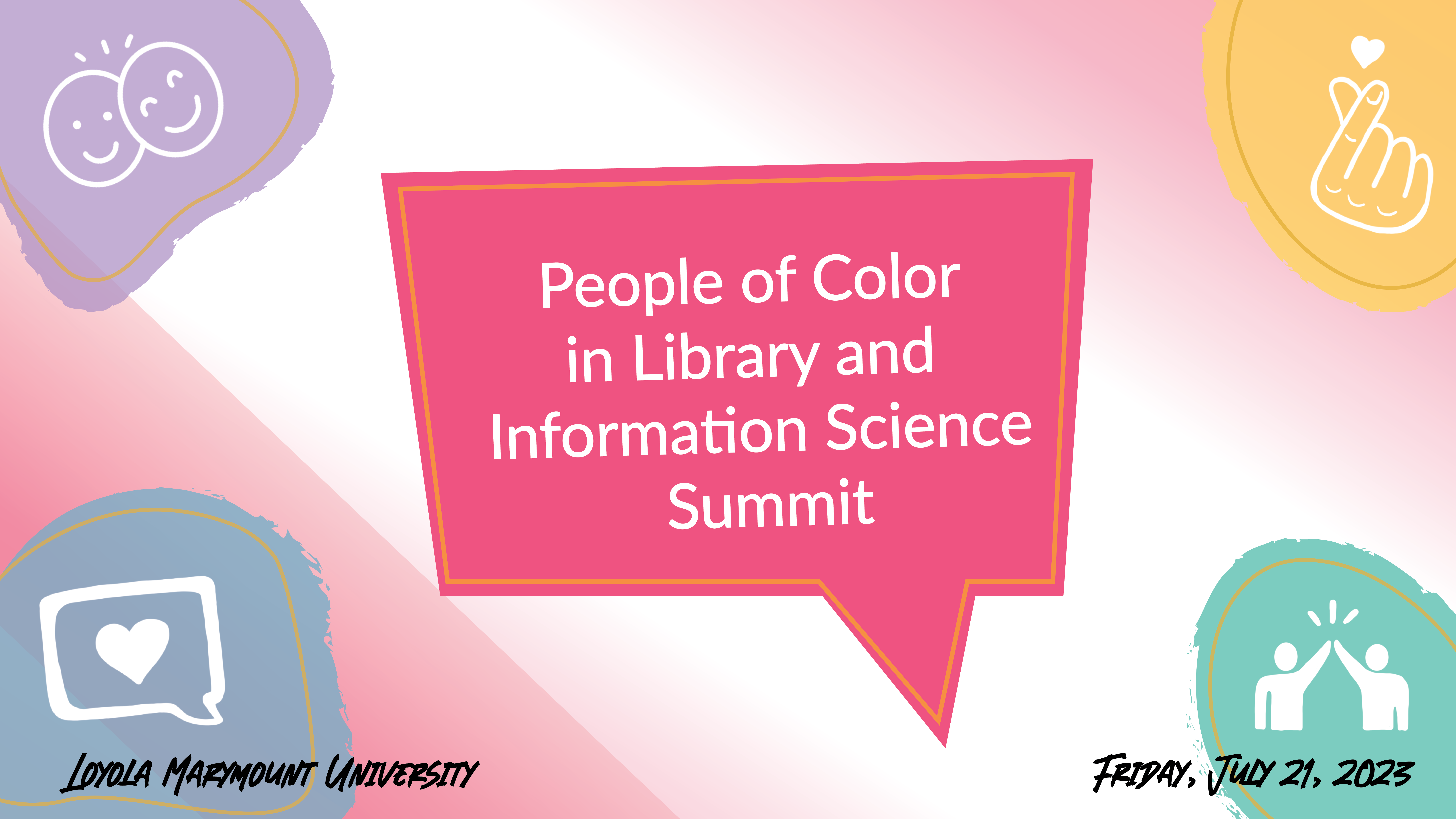Event Type
Presentation
Location
U-Hall Classroom 3230
Start Date
21-7-2023 1:15 PM
End Date
21-7-2023 2:15 PM
Description
This session outlines my progress in an autotheoretical project exploring the tensions between my intersectional identities as a queer, immigrant, and brown citizen, and their connections with my experiences navigating the institutional whiteness of librarianship. As part of the Philippine diaspora, I've struggled with the legacies of Spanish and American colonialism manifesting in a psychic "self-sabotaging pathology" induced by "epistemic violence. . . wrought on a people’s psyche when their sense of themselves and their world is exploded through denigration, demonisation, delegitimation or simply, disallowance" (Mendoza 2017). By recounting my journey to becoming a librarian, I draw parallels between the persistence of patriarchal oppression in librarianship and the psychic pathology suffered by the Philippine peoples, caused and buttressed by the colonization of the mind through educational frameworks valorizing western ideals over Indigenous knowledge. I analyze my experiences as a higher education information worker through Philippine postcolonial psychology studies and Indigenous virtues, like loób, which transcends the Cartesian separation of interiority and exteriority, and kapwa, the recognition of shared identity (Matienzo 2022). As a Teaching and Learning Librarian, my goal is to interrogate how information literacy pedagogy can be informed and enriched by Philippine Indigenous thinking and imagination, especially as a way to decenter whiteness in library instruction. Finally, I reflect on my kinship with the Indigenous figure of the babaylan, whose feminized and queer status as a spiritual guide led to their decimation and erasure through Catholic conquest, and how unearthing this ancestral connection as a queer Filipinx provides both sanctuary and strength as libraries and librarians across the US face anti-LGBTQ+ violence. Through this work, attendees will learn a new strand in the woven tapestries of Indigenous collective trauma and imagine the possibilities for remaking librarianship through Philippine Indigenous virtues like loób and kapwa.
Outcomes
- Recognize and understand the impact of colonial histories on Indigenous knowledges
- Reflect on librarianship’s whiteness and work towards decentering it;
- Interrogate information literacy pedagogy through a post-colonial lens
Session 2B: Reversing White Yearning: A Brown and Queer Filipinx Librarian’s Exorcism of Colonialism and Veneration of Indigenous Ancestry (A Work in Progress)
U-Hall Classroom 3230
This session outlines my progress in an autotheoretical project exploring the tensions between my intersectional identities as a queer, immigrant, and brown citizen, and their connections with my experiences navigating the institutional whiteness of librarianship. As part of the Philippine diaspora, I've struggled with the legacies of Spanish and American colonialism manifesting in a psychic "self-sabotaging pathology" induced by "epistemic violence. . . wrought on a people’s psyche when their sense of themselves and their world is exploded through denigration, demonisation, delegitimation or simply, disallowance" (Mendoza 2017). By recounting my journey to becoming a librarian, I draw parallels between the persistence of patriarchal oppression in librarianship and the psychic pathology suffered by the Philippine peoples, caused and buttressed by the colonization of the mind through educational frameworks valorizing western ideals over Indigenous knowledge. I analyze my experiences as a higher education information worker through Philippine postcolonial psychology studies and Indigenous virtues, like loób, which transcends the Cartesian separation of interiority and exteriority, and kapwa, the recognition of shared identity (Matienzo 2022). As a Teaching and Learning Librarian, my goal is to interrogate how information literacy pedagogy can be informed and enriched by Philippine Indigenous thinking and imagination, especially as a way to decenter whiteness in library instruction. Finally, I reflect on my kinship with the Indigenous figure of the babaylan, whose feminized and queer status as a spiritual guide led to their decimation and erasure through Catholic conquest, and how unearthing this ancestral connection as a queer Filipinx provides both sanctuary and strength as libraries and librarians across the US face anti-LGBTQ+ violence. Through this work, attendees will learn a new strand in the woven tapestries of Indigenous collective trauma and imagine the possibilities for remaking librarianship through Philippine Indigenous virtues like loób and kapwa.
Outcomes
- Recognize and understand the impact of colonial histories on Indigenous knowledges
- Reflect on librarianship’s whiteness and work towards decentering it;
- Interrogate information literacy pedagogy through a post-colonial lens




